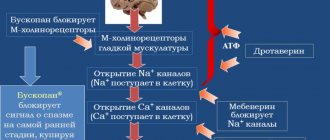The drug "Mifepristone" belongs to synthetic hormonal antigestagenic agents and is prescribed for termination of early pregnancy, i.e. without surgical intervention.
It is not possible to purchase this medical product at a pharmacy, since this drug is supplied only to specialized medical institutions.
Many people are interested in how Mifepristone works.
The effect of the medication is based on the suppression of the synthesis of female pregnancy hormones, which are actively produced from the first days of conception.
general information
The mechanism, features, and nuances of action of Mifepristone tablets are described in the documentation accompanying the drug. Many women who used the drug under the supervision of a doctor noted the absence of any changes immediately after taking the medication. Before considering what effect a medicine has on the human body, you should pay attention to the release features.
"Mifepristone" is a tablet containing 200 mg of the active compound in each copy. Normally it has a light yellowish color, with a possible shade of green. The composition and effect of the drug "Mifepristone" are described in the accompanying instructions, which must be present in the packaging of the product. In addition to the active compound, the manufacturer uses starches and lactose, cellulose and magnesium stearate, as well as polyvinylpyrrolidone in the manufacture of the pharmaceutical product.
Composition and release form of Misoprostol
Misoprostol is available in tablet form. Each tablet contains 200 mcg of the active substance - misoprostol.
In addition to the main component, the composition includes the following components: hydrogenated castor oil, hypromellose, sodium carboxymethyl starch, microcrystalline cellulose.
Pharmacology
The mechanism of action of Mifepristone is associated with the characteristics of a person’s hormonal background. The drug delivers an orally synthetic steroid substance that interrupts the normal process of gestation. The drug is intended to inhibit progesterone receptors. The medication does not have a gestagenic effect. Antagonistic ability regarding glucocorticoids has been revealed.
The effect of Mifepristone to stimulate labor and interrupt pregnancy is due to an increase in the ability of the myometrium to contract. This occurs due to the release of the eighth interleukin in cellular structures. Due to this, the susceptibility of uterine tissue to prostaglandins increases. To maximize the effectiveness of the course, Mifepristone is used simultaneously with synthetic prostaglandins. The effect of the drug on the human body leads to desquamation of the membrane, after which the egg is naturally rejected and eliminated from the female body.
Indications for use
It is advisable to use this medication in the following situations:
- for the purpose of terminating pregnancy (for a period of no more than 40 days) using medication;
- for emergency contraception after unprotected sexual intercourse with ejaculation into the vagina (within three days);
- for the purpose of dilating the cervix during surgical intervention during termination of pregnancy (up to 13 weeks);
- in the treatment of uterine leiomyoma.
It is very important to keep in mind that the drug Mifepristone can be used to induce labor in normal full-term pregnancies. In such a case, the medication has no effect on the health of the child and mother, as well as on subsequent lactation and breast milk production.
In accordance with the instructions for Mifepristone, the main indication for prescribing the drug is termination of pregnancy. The grounds for medical abortion may be: the impossibility of removing the fetus by mechanical insertion, serious pathologies during pregnancy, various social indicators, or a pregnancy that threatens the life of the mother.
Thus, the medicine hormonally stimulates the onset of spontaneous miscarriage, that is, for those women who do not want or do not have indications for surgical abortion.
Let's find out how to take Mifepristone.
Kinetics
After taking Mifepristone, the action begins immediately after the drug is absorbed into the circulatory system. A single use of 600 mg of the substance in food allows you to obtain the highest concentrations of the active compound in the blood after 1.3 hours. On average, the parameters vary about 1.98 mg/l. The indicators were obtained by studying the blood serum of pregnant women. The bioavailability of the drug is estimated at 69%.
The effect of Mifepristone tablets (second, first, third) is due to the ability of the active compound to form strong bonds with whey proteins. The probability of the substance coming into contact with the transport system is estimated at 98%. The most active are albumins, an acidic glycoprotein of the first alpha type. Soon after the substance is distributed throughout the body, elimination begins. The process is quite slow at first. Concentration levels are halved in 12-72 hours. Then the process speeds up. The half-life is estimated to be approximately 18 hours.
How long does it take for Mifepristone to work to terminate a pregnancy?
After using Mifepristone, most women do not experience any changes. But even if discharge appears, this does not mean that the pregnancy was terminated. To complete a medical abortion, after 36-48 hours it is necessary to take drugs that are synthetic analogues of prostaglandins.
The instructions for use indicate that when taking 600 mg of Mifepristone, its concentration in the blood reaches its maximum level after 1.3 hours. The half-life of the drug is 18 hours.
Mifepristone therapy without prostaglandins may not be effective. If such a situation arises, it will be necessary to terminate the pregnancy surgically. It is not recommended to preserve a fetus that could not be expelled from the uterus with medications. There is a high risk of developing birth defects due to the negative effects of the active substance.
Some people use other methods, such as taking Cytotec without Mefipristone to terminate a pregnancy. This medication dilates the cervix and increases contractile activity of the uterus.
Warning! Refusal to use Mefipristone before using prostaglandins, under the influence of which the fertilized egg loses its ability to stay in the uterus, can cause complications.
Is it worth using?
According to reviews, Mifepristone is used relatively often to stimulate labor (the duration of action of the drug varies, but the first effect is observed at the level of biochemical reactions within an hour and a half after administration) and gives the desired result. The use of the drug in many patients does not provoke undesirable effects, but there is a risk of side effects. The best impressions of the course were among women who used the product under the supervision of a doctor.
If it is necessary to terminate an unwanted pregnancy, Mifepristone is used in the early stages of pregnancy. Women who were forced to practice this measure noted that the remedy did not cause any discomfort at first, but by the time the fertilized egg was expelled and shortly before that, they were bothered by chills, fever and pain in the lower abdomen. The drug almost always allows you to achieve the desired effect, although incomplete interruption is possible, which the manufacturer warns about in the instructions.
How to take Mifepristone to terminate a pregnancy
You should not take pills at home without medical supervision. A woman who decides to have a medical abortion must be in a medical facility on the day of the procedure. Reviews confirm that doctors recommend taking Mifepristone only in the hospital when terminating a pregnancy in the early stages. It is advisable to start the procedure in the first half of the day, because at this time all medical personnel are in the hospital.
According to the instructions for use, 3 tablets of Mifepristone, which corresponds to 600 mg of the active substance, must be taken in the presence of a gynecologist. You need to wash them down with 100 ml of clean water. It is advisable to have breakfast 1-1.5 hours before taking the medication.
1.5-2 days after using Mifepristone, in order to terminate early pregnancy, it is necessary to take prostaglandins. The doctor may recommend products based on misoprostol at a dosage of 400 mcg or Gemiprost 1 mg (this drug is administered intravaginally).
When carrying out medical termination of pregnancy with Mifepristone and Misoprostol, it is necessary to do an ultrasound 36-48 hours after using the first drug. The manufacturer's instructions advise adhering to the same recommendation in cases where another synthetic prostaglandin is used instead of Misoprostol for an abortion.
To stimulate labor during long periods of pregnancy when the fetus dies in utero, it is recommended to take 1 tablet of 200 mg. After 24 hours, it is necessary to take the drug again in the same dosage.
When is it recommended?
Women who need urgent termination of pregnancy are forced to recognize the effects of Mifepristone. The product can be used for up to nine weeks, when no more than 63 days have passed since the last menstrual bleeding. The substance is used only when the location of the fertilized egg inside the uterus is confirmed. In this embodiment, the medication is used in combination with artificially manufactured prostaglandins.
If surgical intervention is necessary to remove the embryo before the twelfth week, Mifepristone is used shortly before the intervention in order to conservatively achieve dilation of the uterine cervix.
Interaction with other drugs
- If, during the period of Miropriston administration, a woman is taking a course of glucocorticosteroids, the dose of the latter medications must be increased. This is due to competition that appears at the level of mifepristone's effect on receptors.
- It is unacceptable to take Miropriston with any non-steroidal anti-inflammatory drugs.
- Pregnancy and lactation period.
Taking Miropriston during lactation requires a temporary stop in feeding for 3 days: during this period it is recommended to express milk. In the case when the drug is prescribed to stimulate the birth process, no restrictions are imposed on breastfeeding.
Indications and cases
If it is necessary to terminate a pregnancy, the duration of which varies between 13-22 weeks, Mifepristone is resorted to in order to increase the effectiveness of taking prostaglandins. This is allowed only if there are social and medical recommendations for medical abortion.
If spontaneous abortion occurs in the second or third part of the term, the fetus dies inside the uterine cavity, Mifepristone is used to induce labor.
special instructions
It should be noted that when using drugs that stimulate labor, after the end of labor it is forbidden to breastfeed the baby for two weeks. For more detailed information, please consult your doctor. In some cases, lactation will be prohibited on a permanent basis.
Mifepristone should be used with extreme caution in women who have a negative Rh factor . After the end of labor, immunization should be carried out immediately. This should be taken care of by a gynecologist-obstetrician who monitored the condition of the pregnant woman throughout the entire period.
Important! When mifepristone is taken simultaneously with glucocorticoids (GCS), the effect of the second substance worsens. In such cases, the dosage of GCS should be increased.
The drug does not have any harmful effects on the female reproductive system. Immediately after the termination of the first pregnancy, you can become pregnant a second time.
After taking small doses of mifepristone (10-30 g), it is better not to save the pregnancy, as there remains an increased risk of congenital pathologies of the fetus. Sometimes this drug is used as an emergency contraceptive. A dosage of 10 mg before sexual intercourse will prevent the conception of a child. Another special indication remains the fact that this drug in dosages of 200 mg is used to terminate pregnancy by aspiration.
How to use?
To achieve the maximum effect of Mifepristone, after taking the drug you need to take several tablets of synthetic prostaglandins. Rules, portions, intervals between doses - the doctor will tell you about this at your appointment. The first tablets will have to be used as food directly in the clinic. After this, the woman is left for several hours under the supervision of specialists. The manufacturer in the accompanying documentation also indicates the need to use the medication strictly in an institution that has equipment and qualified specialists who can provide urgent assistance to a woman in need.
It is recommended to use the medication in food one and a half hours after a small meal. Take the tablets with half a glass of pure water without additives. To maximize the effect of Mifepristone, 0.4 g of Misoprostol is prescribed. 36-48 hours after the procedure, an ultrasound examination of the reproductive system is indicated. Clinical tests are taken again 8-14 days after the event, and then another ultrasound examination is done. Identification of beta-hCG indicators is indicated. The main task of the tests is to clarify the fact of a miscarriage. If the pregnancy continues or the termination is not complete, two weeks after taking Mifepristone the woman is referred for vacuum aspiration. The resulting tissue must be examined in the laboratory.
Sometimes there is a need for Mifepristone for childbirth. Time is especially important with this course. The first dose is used in the presence of a doctor (0.2 g), exactly one day later the same amount is taken. After 48-72 hours, the condition of the reproductive system is checked in a clinical setting. If there are indications for this, the woman is prescribed prostaglandins and oxytocin.
Exposure time
How long it takes for Mifepristone to work depends on the woman’s condition. In most cases, the medicine begins to act (uterine bleeding begins) approximately 10 hours after taking it orally.
Since it is impossible to purchase this medicine on your own, there is no talk of any method of performing an abortion at home. This happens exclusively under the strict supervision of specialists.
Undesirable effects
During the action of Mifepristone, uterine subinvolution is possible. It is known from clinical practice that some women experience pain and discomfort in the lower abdomen. There is a danger of metrorrhagia, lochiometers. If there is an infectious focus in the reproductive or urinary system while taking medications, an exacerbation of the pathological process is possible. Side effects of Mifepristone include headache and general weakness.
It is noted that some felt sick and vomited. Possible bowel dysfunction. Some women felt dizzy, others shivered. Side effects of Mifepristone may include fever and fever. The combined use of the drug and synthetic prostaglandins is accompanied by the risk of developing vaginitis, sleep disturbances, and pain in the lower extremities. Some experience dyspepsia, asthenia, and anxiety. There is a risk of developing anemia, the appearance of leucorrhoea, and a tendency to faint.
Side effects
When taking Mifepristone to terminate an unwanted pregnancy, women may experience negative consequences. Possible side effects from using the tablets include:
- weakness;
- discomfort in the lower abdomen;
- headache;
- dizziness;
- hyperthermia;
- disturbance of intestinal motility;
- vomit;
- nausea;
- skin rashes.
In addition, the instructions indicate side effects directly related to the action of the active substance - bleeding, pain in the abdomen. After completion of the interruption procedure, the condition gradually normalizes.
When combined with Misoprostol, there is a risk of developing the following health problems:
- vaginitis;
- anemia;
- fainting conditions;
- insomnia;
- dyspepsia;
- anxiety;
- leucorrhoea
Some women experience the development of asthenia. In this condition, performance deteriorates, self-control weakens, and fatigue increases.
It is forbidden!
It is forbidden to test the effect of Mifepristone on yourself if hypersensitivity to any substances present in the medication is detected - this applies to both the main compound and the auxiliary ones. It is forbidden to take the described course against the background of insufficiency of the adrenal glands, liver, kidneys in acute or chronic form. Mifepristone should not be used if a woman has been using glucocorticosteroids for a long time. Contraindications are porphyria, uterine fibroids, uterine scar, anemia and hemostasis failure. Do not use the composition if you have recently completed a course of blood thinning medications.
A contraindication for taking Mifepristone is an inflammatory process in the reproductive system or extragenital pathology that is very severe. At the age of over 35 years and with a smoking habit, Mifepristone is strictly contraindicated without preliminary examinations and tests.
Contraindications
This medication should not be used in the following cases:
- with unconfirmed pregnancy;
- with ectopic pregnancy;
- for a period of more than 40 days;
- if there are fibroids in the uterus;
- during pregnancy that occurs while using intrauterine contraceptives or after stopping the use of oral hormonal drugs.
Contraindications for preparing and inducing labor are:
- preeclampsia and eclampsia;
- severe forms of gestosis;
- uterine fibroids;
- premature or post-term pregnancy.
Contraindications for the treatment of uterine leiomyomas:
- ovarian tumors;
- lactation period;
- endometrial hyperplasia;
- myomatous nodes;
- pregnancy.
In addition to specific ones, there are also some general contraindications to the use of this drug. These include:
- adrenal insufficiency;
- porphyria;
- anemia;
- high sensitivity to the components of the drug;
- scars on the uterus;
- renal or liver failure;
- violation of hemostasis;
- inflammatory process in the genital organs;
- extragenital diseases.
This medication should be prescribed with caution to patients who have heart failure, bronchial asthma, arrhythmia, obstructive chronic diseases, and arterial hypertension.
Since this medicine fights the production of a certain hormone, it is almost impossible to avoid side effects, however, they are usually mild.
Goals and limitations
If it is necessary to interrupt pregnancy, Mifepristone should not be taken if there is a suspicion of attachment of the fertilized egg outside the uterine cavity. You cannot use the product if clinical studies have not confirmed the fact of conception, while 42 days have passed since the last menstrual bleeding, and before that the woman used hormonal contraceptives or an intrauterine device.
If it is necessary to prepare for childbirth, Mifepristone can be used if severe gestosis, eclampsia and the condition preceding it are excluded. Do not use the drug if childbirth is expected earlier or later than due date.
The extremely carefully described composition is used against the background of COPD and severe asthma. Limitations are considered to be high blood pressure, CHF, and disturbances in the frequency, speed, and rhythm of the heartbeat.
Overdose
If the drug is used according to the instructions and under strict medical supervision, an overdose should not occur. In some cases, when the dose is exceeded (especially at the time of termination of pregnancy), the following unpleasant effects may occur:
- urinary retention, acute anuria;
- pronounced swelling of the lower extremities;
- yellowing of the skin;
- abdominal pain, severe vomiting, diarrhea, constant nausea and dizziness.
To date, 15 deaths have been recorded worldwide after taking mifepristone. Some of them occurred due to overdoses, some due to contraindications (women used this drug without reading the instructions for use and not knowing about the contraindications). However, after reading this article, you learned how long it takes for mifepristone to start working, how it manifests itself, and what side effects may occur. To protect your life, this drug should be taken only after consultation with your doctor.
Pregnancy Medicines Childbirth Induction of labor
Mutual influence
To minimize the likelihood of side effects of Mifepristone, it is necessary, if possible, to exclude the entry into the body of both this drug and non-hormonal agents to stop the activity of foci of inflammation. You should not use acetylsalicylic acid if you need progesterone antagonists. Ignoring this condition may cause the medication course to be ineffective.
Mifepristone and beer
There are a number of reasons why you should avoid combining a foamy drink with medicine:
- Beer is considered a low-alcohol drink. Due to the low ethyl content, people do not take beer seriously. This is his main cunning. With frequent consumption of beer, alcoholism develops somewhat faster than from strong drinks. Therefore, you should not combine it with medication, especially in the post-abortion period.
- Beer has a diuretic effect, creating a huge burden on the kidneys. If you have problems with the urinary system, it is better to avoid the combination with the drug to avoid serious complications.
- Beer contains a large amount of natural phytoestrogens that block the work of the drug. Long-term use leads to hormonal imbalance. Treatment may not be effective
Summarizing what was written above, it becomes clear that the substances do not combine well. Even a modest dose of alcohol causes various consequences. While using the drug, it is recommended to give up alcohol completely. You should start drinking after an abortion after consulting a doctor.
Nuances and subtleties of use
The use of the drug in question in an amount of up to 2 g does not lead to an increase in undesirable effects. An overdose can cause adrenal insufficiency. If such an effect is detected, drugs and procedures are prescribed, focusing on the woman’s condition and symptoms.
Mifepristone is supplied to medical institutions specializing in gynecology and obstetrics. The product is sold in government organizations, in private and municipal clinics that have the appropriate license. If it is impossible to use the described remedy, it makes sense to consider alternative options: “Mifegin”, “Mifiprex”. The medicines “Mifolian” and “Pencrofton” have a good reputation. Both the pills in question and the alternative drugs belong to the group of hormones.
Where to buy Miropriston for medical abortion in St. Petersburg, price
Miropriston is not sold through the pharmacy chain in St. Petersburg. The drug is supplied exclusively to medical institutions of the appropriate profile for its use directly in the process of artificial induction of labor or medical termination of pregnancy. For example, have a medical abortion at the Diana Clinic, at 10 Zanevsky Prospekt. The cost of a set of services, including abortion pills, an appointment with a gynecologist and a comprehensive ultrasound of the female organs is 3,500 rubles.
If you find an error, please select a piece of text and press Ctrl+Enter
Safety comes first
Already at the stage of working out the course, the woman is necessarily warned: it is impossible to maintain the pregnancy, even if Mifepristone does not show the desired effect. If there is no result when taking the pills, there is a need for surgical intervention to interrupt the pregnancy process. Otherwise, there is a high probability of the formation of significant developmental defects. If a woman is breastfeeding, the child should be switched to alternative nutrition options for two weeks after using Mifepristone.
The use of Mifepristone requires measures to be taken to exclude Rh alloimmunization. Other procedures and measures accompanying abortions of all types and forms are shown. The product in question can only be used in stationary conditions. In the presence of a synthetic valve in the heart, when endocarditis of an infectious nature is detected, the use of a hormonal drug is accompanied by an antibacterial course in order to prevent infection activity.
Contraindications to taking pills that cause miscarriage
The possibility of medical termination of pregnancy or artificial stimulation of the labor process is assessed taking into account the general contraindications to taking drugs based on the substance mifepristone:
- increased sensitivity;
- pathologies of the liver or kidneys, occurring in chronic or acute form;
- long-term use of glucocorticosteroids;
- increased levels of porphyrins in the blood;
- decreased adrenal activity;
- hemoglobin less than 100 g/l;
- severe general illnesses (preliminary consultation with a therapist is required);
- insufficient blood clotting indicators;
- previous course of therapy using anticoagulants;
- uterine fibroids;
- inflammation in the pelvic area;
- smoking patients over 35 years of age.
When planning termination of pregnancy, it is necessary to take into account specific contraindications:
- pregnancy not clinically established;
- diagnosed ectopic pregnancy, as well as the presence of symptoms of this pathology;
- pregnancy period is more than 42 days from the date of the last menstruation;
- if conception occurred while using an intrauterine device;
- if conception occurred immediately after stopping oral contraceptives.
When planning stimulation of the labor process, the following contraindications must be taken into account:
- severe gestosis;
- eclampsia of any severity;
- premature or post-term fetus;
- pathological location of the fetus;
- the size of the baby's head is larger than the size of the pregnant woman's pelvis;
- early release of water;
- severe hemolytic disease in the fetus;
- bloody vaginal discharge of unknown nature.
Particular caution should be exercised in prescribing and taking Miropriston to patients with a history of pathologies of the cardiovascular system or lung diseases.
Termination of pregnancy: a complex issue
These days, a woman in need of an abortion can go to a specialized medical facility, where she will be offered several options and procedures to get rid of the fetus. Typically, the choice in favor of a specific one is made based on the duration of pregnancy and health characteristics. If conception has occurred recently, they resort to vacuum aspiration; for up to three months, uterine curettage can be done. Saline abortion is a procedure applicable for a long term. In this case, the water around the fetus is replaced with a specialized saline solution, which leads to the death of the embryo. It is possible to terminate pregnancy when using an intrauterine device or hormonal contraceptives. This can happen completely unnoticed by the woman herself, so there are often situations when a representative of the fair sex does not even know how many conceptions there actually were in her life.
The classic idea of abortion is a curettage procedure, which is quite crude and dangerous, associated with the possibility of serious injury. It can cause infertility for life. A modern alternative is the drug Mifepristone, which does not require surgical intervention.
How does Mifepristone work during abortion?
Mifepristone is a steroidal antiprogestational agent. The manufacturer indicates in the instructions for use that when this substance is taken orally, the action of progesterone is blocked at the receptor level.
After taking the abortion pill Mifepristone, the myometrium begins to contract more actively. At the same time, interleukin-8 is released in the choriodecidual cells, which increases the susceptibility of the muscular layer of the uterus to prostaglandins. The abortifacient effect is enhanced if taken with a synthetic prostaglandin substitute during pregnancy. For such purposes, Misoprostol, Mirolut, Cytotec are used. Such information is even indicated in the instructions for use.
After using Mifepristone and prostaglandins, abortion pills, the decidua of the fertilized egg begins to peel off, and it comes out of the uterine cavity, as in a miscarriage.
Attention! This method of termination of pregnancy cannot be regularly used instead of regular contraception.
Features and nuances
The medicine "Mifepristone" contains 200 mg of the active substance, which, when taken three tablets, allows you to terminate a pregnancy. When the substance is consumed in a small dosage, a contraceptive effect and suppression of ovulation are observed. The cyclicity of menstrual bleeding is disrupted and the regularity of the cycle is disrupted. To terminate a pregnancy, you need to take a large dose. The placenta becomes resistant to progesterone and cannot develop. For this reason, the fetus does not receive oxygen and nutritional components, which leads to its death. Prostaglandins, necessary to continue the course of abortion, stimulate uterine contractions, allowing the elimination of remains from the body. The likelihood of the drug being ineffective is extremely low.
pharmachologic effect
Mifepristone has an important property for women with full-term pregnancy - it inhibits the production of progesterone (the main hormone of pregnancy). As a result, the muscle activity of the uterus increases, the myometrium is stimulated and contractions begin.
With increased cell contractility, the uterus enters into active processes of muscle contraction. This effect of the chemical mifepristone is used to terminate pregnancy and induce labor.
Important! Using the drug without prior consultation with a doctor is strictly prohibited!
If the drug is used before the start of the 9th week of pregnancy, the active substance will contribute to a targeted reduction in the structural connection between the uterine layer and the membranes. As a result of such changes, some blood vessels are destroyed, and the fetus is expelled from the woman's body. After such a procedure, patients may experience heavy bleeding, so the drug is used only under the supervision of a doctor.
How to purchase the composition?
The original remedy for correction during pregnancy is sold exclusively with a doctor's prescription. You can get an analogue of Mifepristone without a prescription only in a hospital. In this case, the doctor may ask you to take the medication under his supervision.
Over-the-counter sales of such medications are prohibited. This is because the use of such drugs can lead to complications. There have even been cases where the use of the composition and its analogues led to death.
What else should you not do after a medical abortion?
Since we are talking about prohibitions after medical abortion, we need to talk about all of them so that it is easier for women to navigate this difficult period.
It is not difficult to guess that at this time any sexual contact is prohibited. And although no mechanical damage occurred, not everything is in order in the woman’s vagina after an abortion. It should take approximately 3-4 weeks (everything is different in each individual case) for the vaginal mucosa to recover, return to normal and regain its former characteristics.
Also prohibited are any exercise, heavy lifting, physical work, or any activity that requires even the slightest effort. During this time, you need to limit yourself to mental work only, and definitely cancel the gym.
You can't take a bath. After a medical abortion, women should only wash in the shower. The water should be warm, but not hot, so as not to provoke increased bleeding. You can’t wash with cool water either. It is strictly forbidden to go to the pool! This can lead to infection. But you need to wash more often. Maintaining personal hygiene will reduce the risk of germs entering.
Doctors advise to refrain from smoking tobacco. Or at least reduce the number of cigarettes you smoke daily. There is no need to weaken an already weakened body. He needs to recover.
Some medications are also prohibited: Ketanov, Ketarol, Aspirin, Nurofen, Paracetamol, Ibuprofen, Diclofenac and others. You should consult your doctor for a complete list of prohibited medications.
You can't use tampons. There will be bleeding, but for personal hygiene you can only use pads. And they need to be changed every 3 hours even with minimal external contamination. This is necessary to minimize the risk of bacteria entering the vagina.
Features of medical abortion
This is the newest method of quickly and gently terminating a pregnancy from 1 day to 6 weeks. It does not require anesthesia or surgery.
In the early stages, this method of termination is recommended by all qualified specialists and is increasingly gaining popularity among other methods of getting rid of an unwanted fetus.
The procedure involves administering a special substance that stops the effects of progesterone, which is responsible in the female body for the appearance and course of pregnancy. The action of the tablets recommended by doctors is aimed at neutralizing this hormone; without it, the fetus will not develop.
The substances contained in the tablet exfoliate the embryonic membranes from the walls of the uterus, stimulating strong uterine contractions, which causes the embryo to leave its place and eventually come out.
The procedure has a number of contraindications:
- Uterine fibroids;
- Kidney or liver failure;
- Inflammatory processes in the gastrointestinal tract;
- Severe anemia;
- Arterial hypertension;
- Ectopic pregnancy.
Instructions for the use of Mifepristone and Misoprostol for medical abortion.
Dosages
All dosages in our medical abortion complex are selected in accordance with the latest WHO (World Health Organization) recommendations. Mifepristone – 200 mg.
Misoprostol – 400 mcg. + an additional dose of 400 mcg is provided free of charge with the kit.
Procedure
To begin the procedure of medical abortion, interruption with tablets, the patient must take 200 mg of Mifepristone orally, washed down with water (at least 150 ml). Within 24-48, minor bleeding and aching pain in the lower abdomen may begin, which is not a pathology.
Action of Mifepristone
Mifepristone is a progesterone blocker (this is the main hormone that maintains pregnancy). The main effect of the drug during medical abortion is to stop the development of pregnancy. Mifepristone also significantly increases the sensitivity of cells to prostaglandins (in particular, Misoprostol). After 36-48 hours from the moment of taking Mifepristone, it is necessary to take the second drug from the complex - Misoprostol price in the following dose: 3 tablets of 200 mcg. The preferred way to take Misoprostol is to dissolve first one tablet under the tongue, then the second and third 30 minutes after taking the second tablet. At the same time, the likelihood of vomiting is significantly reduced, and the effectiveness (relative to simple oral administration) increases. However, Misoprostol can be taken orally with plain water.
Action of Misoprostol
Misoprostol against the background of the action of Mifepristone stimulates the contractile activity of the uterus, which is usually accompanied by cramping pain in the lower abdomen, and bleeding also appears or intensifies. Against the background of these processes, the fertilized egg is separated from the walls of the uterus and released through the genital tract. To eliminate severe pain, it is possible to use antispasmodics, for example, No-shpa. The use of non-steroidal anti-inflammatory drugs (Aspirin, Diclofenac, Ibuprofen, Ketanov, Tempalgin, Paracetamol, etc.) is contraindicated: these drugs block the action of Misoprostol!!!
Possible side effects of Misoprostol include dizziness, nausea, vomiting and diarrhea.
After taking medications
Usually, over the next 3-5 days, spotting is observed (usually a little heavier than menstruation). The possible duration of bleeding (with decreasing intensity) is 12-14 days. On the 7-10th day after taking Misoprostol, it is necessary to conduct a control ultrasound examination of the pelvic organs.
Possible complications during medical abortion. Remedies
1. When using Mifepristone and Misoprostol for a medical abortion procedure, the following symptoms may be observed: dizziness, headache, nausea, vomiting, discomfort, weakness, fever or diarrhea. Typically, these symptoms are mild and disappear without medical intervention. If vomiting occurs within one hour after taking Mifepristone or Misoprostol, then you must take the corresponding drug in the same dose. If the patient has severe early toxicosis of pregnancy (vomiting of pregnant women), then before using the complex for medical abortion, it is necessary to administer Cerucal intramuscularly, 2.0 ml, after 30 minutes take food (in a small volume), and then apply the drug. 2. Pain during medical abortion can be of varying intensity and depends on the duration of pregnancy (pain intensifies with increasing gestational age), as well as on the individual sensitivity threshold. Usually the pain is tolerable and does not require additional interventions. In case of severe pain, it is possible to take antispasmodics, for example No-shpa. Please note that the use of non-steroidal anti-inflammatory drugs (most analgesics, for example Analgin, Paracetamol, Ibuprofen, Ketanov, etc.) for pain relief is contraindicated, since they block the action of Misoprostol (!), thereby reducing the abortive effect of the complex. 3. The volume of bleeding in most cases is slightly higher than the usual amount of menstrual blood loss; Moreover, the longer the pregnancy, the more pronounced the volume. Despite possible heavy bleeding, there is no need for additional treatment.
4. Incomplete abortion. If this complication is detected, then vacuum aspiration is necessary to evacuate the remnants of the fertilized egg.
Contraindications and restrictions for medical abortion
When using Mifepristone, caution should be exercised in patients with the following pathologies: chronic obstructive pulmonary diseases, bronchial asthma, chronic cardiovascular diseases, renal and liver failure. Smoking women over 35 years of age who smoke more than 10 cigarettes per day belong to the relative restriction group. Often, this category of patients experiences pathological processes in the blood coagulation system, as a result of which longer and more intense bleeding may occur. Before undergoing a medical abortion, consultation with a physician is recommended. Severe arterial hypertension is a contraindication for the use of Misoprostol. In this situation, medical abortion is performed only with the help of Mifepristone. Nursing mothers should stop breastfeeding for 7 days after taking Mifepristone.
Spontaneous abortion (miscarriage) in use is not a contraindication to the Mifepristone + Misoprostol complex, because in this state, the complex will ensure accelerated release of the fertilized egg with a decrease in the likelihood of incomplete abortion.
Rehabilitation after medical abortion
Termination of pregnancy by medication completely eliminates mechanical damage to the uterus, but does not exclude the development of possible functional disorders as a result of hormonal stress. To prevent the development of such a pathology, all patients who have undergone medical termination of pregnancy are recommended to take monophasic combined oral contraceptives (for example, Marvelon, which you can also purchase on our website at a special price) for two menstrual cycles. You need to start taking contraceptives from the fifth day from the start of menstrual-like discharge during a medical abortion. If a woman wishes “I want to have an abortion,” we recommend purchasing medications on our website and having an abortion at home. This page describes the doses of Mifepristone and Misoprostol (Cytotec) for early termination of pregnancy (medical abortion). How to terminate a pregnancy.
xn--80ahcnkif5a8a.xn--p1ai
Description
The drug "Mifepristone", analogues of which have an identical composition, contains the main active ingredient under the same name. It suppresses the production of a hormone called progesterone. In addition, the drug prevents the implantation of a fertilized egg by affecting the endometrium.
The drug in question belongs to the antigestagenic group, usually used for medical abortions. The age of the fetus is determined by ultrasound. Sometimes the medication is used to induce labor.
How long after can I drink?
If a woman feels fine after the drug abortion and does not need to take medications, then she can drink alcohol in small doses 10 days after taking the second pill to terminate the pregnancy. To completely get rid of the fetus, the patient will need to take two tablets, between which a certain break must be maintained, specified by the gynecologist. Somewhere at the beginning of the third week after taking the second tablet, the woman’s body is restored and can withstand external negative factors, which include the ethanol contained in alcohol.
Each dose of alcohol consumed increases the risk of inflammation, so you should drink high-proof drinks in moderation and no more than once a week. Drinking red wine, vermouth, vodka and liqueurs is prohibited.
If there is a strong desire among friends, a woman who has had an abortion can drink:
- 150-180 ml light beer;
- 60 ml dry white wine;
- 20-30 ml cognac.
If antibacterial treatment was prescribed after a medical abortion, only a doctor will allow drinking alcohol after making sure that there are no complications.
In fact, it is better to abstain from alcohol for a month after the procedure, and return to drinking it when:
- The immune system will be fully restored;
- The bleeding will stop;
- Psychological discomfort will pass after the procedure;
- The doctor will confirm that there is no reason to worry and possible risks have been ruled out.
When wondering when you can drink alcohol after an abortion, it is better not to rush and wait for the body to fully recover, both physical and psychological, in order to avoid alcohol addiction and serious disruptions in the functioning of the female organs. It is worth giving up alcohol-containing drinks for at least two weeks, and also not visiting saunas and baths.
Unfortunately, pregnancy is not always desirable and happy for a woman. And beautiful ladies will think about abortion. Modern gentle medicine actively uses medicinal (artificial) interruption of term for these purposes. This is the most gentle and fastest abortive method compared to conventional curettage. But even this requires certain knowledge and caution from the patient.
Pharmaceuticals currently provide a fairly large selection of tools that help implement such an intervention. Every woman who decides to take a dangerous and psychologically very difficult step has her own reasons. But in any case, ladies must know some rules for taking these drugs, and, in particular, whether it is possible to drink alcohol after a medical termination of pregnancy.
When is Pencrofton prescribed?
The content of the article
Pencrofton is prescribed both for medical abortion and as a means of inducing labor in late pregnancy. Mifeprex, mifepristone and mifegin are other variants of the names of this drug, which share the active substance mifepristone. This means that it has all the effects of these drugs.
The dosage form is pale yellow tablets, a green tint is allowed.
Disadvantages of Ginestril: important features of administration
Like all steroid drugs, Ginestril has a number of side effects. These include:
- Development of endometrial hyperplasia due to uncontrolled or illiterate use of the drug.
- Despite the drug's effectiveness of 97%, there remains 3% of developing pregnancies that must be terminated surgically.
- In combination with non-steroidal anti-inflammatory drugs (Ibuprofen, Diclofenac, Aspirin), Ginestril loses its effectiveness.
- In combination with glucocorticosteroids (Alfoderm, Flumethasone, Nasonex, Flixotide), Ginestril reduces the effect of the latter.
- The drug causes asthma attacks by stimulating smooth muscle contraction.
- Some patients may experience adrenal or kidney failure.
- If there are undetected problems with the ovaries (cyst, tumor), the drug will provoke rapid growth of the tumor.
- In some cases, there is a disruption of the menstrual cycle (when used independently); some patients note a sharp deterioration in their health due to anemia and a decrease in hemoglobin levels.
Is it possible to drink alcohol after an abortion?
Pharmaboration is a gentle procedure, but it still causes irreparable damage to the female body, as the natural cycle of fetal development is interrupted. Ethanol in alcohol does not affect the effectiveness of the procedure, but it causes intoxication of the entire body, which affects the condition of the heart muscle, nervous system, liver and kidneys.
Abortion pills are hormonal and if combined with alcohol, you can significantly accelerate the development of cancer of the genital organs: appendages, uterus, tubes and others.
After undergoing a strong drug intervention, the body will take a long time to restore its strength, and artificial stimulants such as alcohol or smoking will only prolong its phase of returning to its former form, and in some cases can provoke significant pathological processes.
Some advisors may suggest low-alcohol drinks as an alternative; even beer is contraindicated.
After pharmaabortion, drinking alcohol can cause several significant complications:
- Body malfunctions;
- Increased bleeding;
- Infection and the need for antibacterial therapy;
- Depressed state.
Body malfunctions
Medicines used to interrupt fetal development contain potent chemicals, and if alcohol enters the body, its ingredients will certainly react with them and can lead to unexpected consequences. Even an experienced doctor will not be able to predict the course of the caused process, so it will be difficult for him to make a correct diagnosis and prescribe treatment if malfunctions begin to occur in the body.
Bleeding
Alcohol after medical termination of pregnancy can affect bleeding, which is sure to be present for several days after the procedure.
If you drink alcohol at this time, it will dilate the blood vessels, which will lead to increased blood loss, after which it will be difficult for the female body to recover. Wine and cognac have such a strong effect on the body that their infusion during bleeding can even cause death.
It will not be possible to stop heavy bleeding with medication; you will need to undergo one of the unpleasant procedures: vacuum aspiration or curettage.
And such intervention after a recent abortion only aggravates the situation and increases the risk of complications.
Antibacterial therapy
Even a gentle abortion leads to complications, among which infection of the uterus is often found; when this is discovered, the woman who has had an abortion is prescribed antibiotics. And they are incompatible with alcohol, the consequences can be serious: convulsions, tachycardia, arrhythmia, tissue hypoxia, deterioration of cerebral circulation, hallucinations and disturbances in the functioning of the liver and kidneys. With such consequences, it will be difficult to recover, which is why it is worth abstaining from alcohol for the period of complete recovery of the body, and each patient has his own.
Psychological aspect
For whatever reasons a woman decides to have an abortion, it is a colossal stress for her and her body, which does not go away in one day. For most representatives of the weaker half, this event has a strong effect on the psyche, they seem to be in prostration, apathy and blues manifest themselves. The loss of the life of their child due to an abortion becomes irreparable for them, so in order to calm down and muffle the pain, they seek salvation in alcohol, which helps to drown out the feelings, at least for a short time.
Artificial sedation does not last long, and a woman may fall into depression, but even with the support of loved ones, it will be difficult for her to get out of this state on her own. In such cases, you need to seek help from a psychologist, but if a person is simply in a state of apathy, then you need to try to switch him to intellectual activity so that his thoughts are not focused on the completed abortion. Also, as some kind of compensation for the procedure, you can consider helping animals or disadvantaged people.
Alcohol does not calm down, but only dulls the awareness of what happened, by blocking the work of certain areas of the brain. Over time, a person becomes so accustomed to resorting to it as salvation that he becomes dependent. And this is already a serious disease, which is difficult to get rid of, for many women it is an incurable problem.
Due to all the above circumstances, alcohol cannot be used as an antidepressant; it will only worsen the physiological and psychological state of a woman.
Why should you not drink alcohol after taking Mifepristone?
Drinking alcohol during therapy is not recommended for the following reasons:
- Alcohol can seriously undermine the patient’s well-being. It will be possible to use other medications that are not compatible with ethyl alcohol.
- When drinking vodka and other alcohol-containing alcoholic beverages, your emotional state worsens.
If the drug does not work, then you will have to immediately have an abortion in another way, otherwise a child may be born who will have congenital pathological diseases.
Is it possible to drink alcohol after an abortion: the physical aspect
Still, abortion, no matter how gentle it may be, is an unnatural intervention in a woman’s body. Moreover, this is a serious stress for him, which can sometimes be very difficult to bear. A long recovery period is required, the body needs to get stronger and return to its former shape. And therefore, we can absolutely safely say that a woman should not drink alcoholic beverages after a medical abortion. Even drinking beer is prohibited. And there are a number of reasons for this.
As already mentioned, in this case the procedure is carried out with the help of medications, that is, these are chemicals. They cause a certain reaction in the body. And alcohol will certainly interfere with their progress. It can either weaken these processes or change them somehow. Even the most experienced doctor cannot predict how the relationship between alcohol (ethyl alcohol) and medications taken will develop.
But we can definitely say that nothing positive should be expected from this. Unauthorized experiments and non-compliance with the rules - all this will certainly affect your health. Any complications may arise, or the recovery process itself will take a longer time and will not be as fast and effective.
Another risk is associated with bleeding from the female reproductive system. What is it about? The thing is that after a medical abortion and the release of the fertilized egg, the woman begins to bleed continuously. It can last for several weeks, during which it is strictly forbidden to drink alcohol.
In general, after an abortion, the body is greatly weakened. And this is not surprising, because he was stressed. Against this background, the immune system is extremely weakened, and health is not in the best condition. And alcohol can only make it all worse. Ethyl alcohol is clearly not what a person with a weakened immune system needs.
Contraindications for correction
There are also situations in which it is strictly forbidden to use the medicine “Mifepristone” or analogues. The instructions indicate that a contraindication to the correction is the period of lactation. During the absorption of the drug, it passes into breast milk. This can greatly harm the baby.
The original medication, like its analogues, is not used for heart disease and blood pressure disorders. The drug should not be taken by smoking representatives of the fairer sex. Mifepristone, like its substitutes, cannot terminate an ectopic pregnancy, since they act directly on the reproductive organ. That is why this pathology is a contraindication to the use of the composition.
The original and its substitutes are not prescribed as a correction for pregnancy more than 6 weeks. There may also be individual situations in which the drug and its analogues are not used. The doctor will inform you about them during the consultation.
Combination of Ginestril with other means for emergency contraception and medical abortion
For up to 42 days of amenorrhea (absence of menstruation), the drug is used in combination with other medications.
Ginestril + Postinor.
Emergency contraception (72 hours) Postinor comes in the form of two tablets - when taken correctly, it is a very strong medicine. But any misuse of the medication nullifies its contraceptive effect. In this case, Genistril, which has a relatively small dosage of mifepristone, will come to the rescue.
If a woman, after unprotected sexual intercourse, took the first postinor tablet and forgot or took the second one late, then 50 mg of Ginestril will significantly reduce the risk of accidental pregnancy. If you don’t have an emergency contraceptive drug like Zhenale or Postinor at hand, four Ginestril tablets taken in two stages will have a similar effect on the body, preventing unwanted pregnancy.
This method should not be used regularly, otherwise it can cause disruption of the ovaries and diseases of the uterus (endometriosis, endometrial polyps). But in extreme cases, Genistril can help out
Ginestril + Misoprostol
. Misoprostol is a synthetic analogue of prostaglandins that stimulate uterine contractions. Together, these two drugs prevent the development of pregnancy. Ginestril softens the cervix, thins cervical mucus, changes the structure of the endometrium, promoting fetal rejection. And misopristol promotes the onset of miscarriage, which is essentially what abortion pills are.
Medication abortion drugs are used in medical institutions under the supervision of a physician. First, the patient undergoes an ultrasound of the uterus to verify the presence and timing of intrauterine pregnancy. Then they give a certain dose of Ginestril (the gynecologist calculates it based on the patient’s age and weight), and after 1.5-2 hours the effect is enhanced by taking Misoprostol.
A medical abortion does not happen in one day; the patient comes for an ultrasound a week later, and the doctor is convinced that the expulsion of the fetus has taken place. If this does not happen, you will have to do curettage.
Possible complications
The number of side effects when taking Mifepristone is impressive and all of them negatively affect a woman’s health. In particular, they distinguish:
- spontaneous dizziness;
- severe headaches;
- pain in the stomach (pain of varying intensity);
- allergic reactions;
- stomach upsets;
- nausea, vomiting;
- unreasonable fatigue, drowsiness.
Often an overdose or a dangerous combination of substances is manifested by a person’s apathy, general lethargy, and the inability to normally coordinate their own movements. If at least one of the symptoms of complications appears, you should immediately consult a doctor.
Risks and consequences of drinking alcohol
During the recovery period after undergoing medical intervention to get rid of pregnancy, alcohol, like tobacco, can worsen and prolong the tissue healing process. In addition to increased bleeding, an increase in blood pressure, the occurrence of inflammatory processes, nausea, lethargy and pain in the pelvis may be observed.
At such a delicate time, alcohol can relieve pain, and the woman will not feel when it increases or decreases. Alcohol-containing drinks impair the perception of medications that can be used to stabilize the patient's condition.
The first two to three weeks after pharmaabortion are the most important, and a woman should be especially careful about her health. If you immediately take a strong dose of alcohol, the effect of the medication to cause a miscarriage may be incomplete, and the pregnancy will continue to proceed.
Substitutes
The drug "Mifepristone", the synonyms and analogues of which we are considering, has several substitutes manufactured in different countries. Thus, in France a medicine is produced under the name “Mifegin”. Chinese and Pencrofton, as well as Misoprostol, which is also produced in Russia. The analogue of Mifeprex is manufactured in the USA.
Other substitutes include the following drugs:
- "Miropriston".
- "Genale".
- "Genepristone."
The latter variations are prescribed primarily as an emergency contraceptive, immediately after sexual intercourse.
Who is Mifepristone contraindicated for?
Analogs and the drug itself are strictly not recommended for use during the lactation period, since the substance is absorbed into breast milk, which negatively affects the child’s body. The drugs in this group are not prescribed for cardiovascular diseases and blood pressure instability.
In addition, the product is not recommended for use by women who smoke. The medication in question is not aimed at terminating an ectopic pregnancy, since the main effect is directly on the reproductive organ. With such a pathology, prescribing the drug is useless and can only harm the body.
The medicine is not recommended for use during pregnancy over six weeks. In addition, there may be individual contraindications, which are reported by the doctor during the consultation.
Abortion drugs and alcohol: compatibility
Basically, medications used to terminate pregnancy act on the pregnant body as follows:
- They affect the endometrial uterine tissue, weakening it. As a result, the endometrium loses its ability to hold a fertilized egg, which makes its further development impossible.
- They have a relaxing effect on the walls of the uterus. The cervix of the uterine organ begins preparation for the expulsion of the fertilized egg.
- The uterus begins to actively contract, and the embryo begins to be completely rejected and removed from the woman’s body. A miscarriage occurs.
If you drink alcohol in anticipation of such events, the female reproductive system may react completely unexpectedly. And any of the three stages of medical abortion will be disrupted. Which will lead to incomplete abortion and subsequent surgical curettage.
In some cases, alcohol in such situations causes profuse vomiting, which expels part of the drug from the body, significantly reducing the effect of subsequent processes. It is for this reason that taking alcohol and drugs for medical abortion are considered incompatible.
Miropriston and alcohol
Miropriston is one of the most effective and frequently used means for these purposes. The main active substance in this remedy is mifepristone (steroidal antigestagen). This drug can only be purchased upon presentation of a prescription.
Mifepristone inhibits the production of the female hormone progesterone. This is what the pregnant body actively produces immediately after conception.
Progesterone helps growth and promotes the development of the future embryo. When a woman's body lacks this substance, a miscarriage occurs . So what is the compatibility between mifepristone and alcohol, and what does frivolous consumption of alcohol lead to during this period? The combination of medication and alcohol may cause the following symptoms:
- migraine;
- manifestations of allergies;
- fast fatiguability;
- constant drowsiness;
- nausea and profuse vomiting;
- sudden dizziness;
- digestive disorders;
- increased uterine bleeding.
Another common drug for medical abortion, Pencrofton, also works on the basis of mifepristone. Just like Miropriston, Pencrofton is prohibited from being used against the background of intoxication.
Mirolut and alcohol
Mirolut, like similar abortifacient medications, can be used only until the 6th week of pregnancy. By the way, this drug can be used as an auxiliary part of complex therapy for stomach ulcers. The active component of the product is misoprostol.
Mirolyut does not have a note in the annotation about the inadmissibility of drinking alcohol during the period of use of the product; this drug is theoretically compatible with ethanol.
But this does not mean that the use of Mirolut against the background of intoxication will not in any way affect the treatment being carried out. It has been established that this combination significantly reduces the therapeutic effect of using the medication. Which ultimately leads to the absolute ineffectiveness of Mirolut.
In the case of a medical abortion, this can only mean one thing - incomplete termination of pregnancy . Consequently, the woman will have to increase the dose of the drug. But an excess of misoprostol in the body can already lead to the development of negative side effects, which, if combined with ethanol, will appear brighter and more painful:
- profuse vomiting;
- loss of consciousness;
- severe dizziness;
- disorientation in space;
- massive uterine bleeding.
Prescription to patients
Incorrect prescription of the drug can cause low effectiveness of treatment or the development of side effects. In this regard, experts highlight indications and contraindications for its use. Ginestril is approved for use only if a woman has uterine leiomyoma, which does not exceed the size of the organ at the 12th week of pregnancy.
The list of contraindications for taking Ginestril is extensive. It includes the following states:
- allergy or individual intolerance to the active substance and auxiliary components of the drug;
- dysfunction of the adrenal glands and pituitary gland;
- long-term use of glucocorticosteroids;
- acute or chronic renal failure;
- the use of anticoagulants or the presence of diseases characterized by disruption of the blood coagulation system;
- decompensated diseases of internal organs, primarily the cardiovascular and respiratory systems;
- inflammatory pathology of the reproductive system;
- location of myomatous nodes directly under the endometrium (submucosal localization);
- the size of the fibroids exceeds the 12th week of pregnancy;
- tumor lesion of the ovaries;
- endometrial hyperplasia;
- breast-feeding;
- pregnancy.
In addition to absolute contraindications, when the use of Ginestril for the treatment of uterine fibroids is completely prohibited, doctors identify relative contraindications: COPD of any severity, bronchial asthma, severe hypertension, arrhythmias and heart failure.
Medical abortion and alcohol
Alcohol-containing products are the main enemy of the human body; its regular consumption always leads to numerous health problems. Alcohol after an abortion is no exception .
Doctors categorically do not recommend increasing your emotional state with alcohol after an abortion using medications.
Medicines used for such purposes are powerful and aggressive drugs that not only negatively affect the already established pregnancy process, destroying it. These drugs have a general effect on the female body, and such an effect cannot be considered safe.
Medical abortion and alcohol are incompatible concepts; this tandem can provoke a lot of dangerous complications. In particular:
- Ethanol can have an extremely negative effect on the effect of the medications used. As a result, the pregnancy may not be interrupted, and the embryo will continue to develop. The consequence is incomplete abortion.
- Although medical abortion is a gentle treatment, the female body needs time to recover. Ethanol significantly reduces the functioning of the immune system, reducing its defenses. If you relax with the help of intoxicating drinks after the procedure, there is a high chance of encountering the development of secondary infections, which are extremely dangerous for a woman during such a period.
Physiological aspect
Heavy bleeding. A particular danger for a woman is increased uterine bleeding after an abortion. If we remember that ethanol has a vasodilating effect, this prohibition becomes clear.
Uterine bleeding under the influence of ethanol can acquire critical and life-threatening proportions due to possible blockage of the uterine vessels. The sad result is a significant increase in hemorrhage and enormous blood loss. Sometimes this situation becomes a life-threatening situation that requires urgent medical intervention.
Reduced effectiveness of medications used. In order to rehabilitate and restore the body after such a rough intervention, the gynecologist usually prescribes a number of medications to the woman. Antibiotics are more often used to prevent infection of the peritoneal organs.
Alcoholic drinks are absolutely incompatible with antibiotics. This combination can lead to the development of serious pathological effects, disruption of the liver, gastrointestinal tract, heart and kidneys, as well as provoke severe intoxication.
When prescribing a course of antibiotic therapy, alcohol can be consumed only some time after finishing taking the medication . When the last metabolites of antibiotics leave the body. Otherwise, in addition to a significant worsening of the current condition, the patient risks encountering symptoms such as:
- tachycardia;
- hot flashes;
- respiratory depression;
- convulsive state;
- severe headaches;
- nausea with vomiting;
- digestive system disorder.
Trying to relax after a medical abortion with the help of alcohol always ends in failure. Such a tandem is extremely dangerous for the development of many side effects. It also poses a threat to the mental state of the former pregnant woman.
Psychological aspect
All representatives of the fair sex always experience a heavy feeling of loss and loss, sadness and depression after an abortion. For many during this period, alcohol becomes a method to muffle emotions and feelings of emptiness. But this method is extremely dangerous, because alcohol will not change the existing reality and will only worsen the condition.
If a woman tries to muffle the feeling of remorse with the help of alcohol, looking for oblivion in it, she quickly becomes dependent. It should be borne in mind that female alcoholism develops rapidly, but getting rid of it is much more difficult than getting rid of it in men.
It is for this reason that psychotherapists strongly do not recommend that women, especially after termination of pregnancy, use alcohol as an antidepressant . If necessary, then instead of a glass you should seek help from a practicing psychologist. This way will become much more efficient and safer. And the same alcohol is successfully replaced with relaxing and soothing decoctions of valerian or motherwort.
Pharmacology and pharmacokinetics
Misoprostol is a synthetic derivative of prostaglandin E1. It promotes contraction of the muscular walls of the myometrium, and also expands the uterine cervix. These features of the substance simplify the process of opening and removing the contents of the uterus. The drug stimulates the muscles of the intestines and stomach.
Absorption occurs quite quickly when used orally. Concomitant use with food reduces the bioavailability of misoprostol. Metabolized to misoprostolic acid in the liver and gastrointestinal tract. When the dosage of misoprostol is increased to 400 mcg, misoprostol acid doubles. The drug is exited through the kidneys and intestines. To terminate a pregnancy, the simultaneous use of Mifepristone and Miroluta is used.











